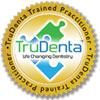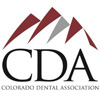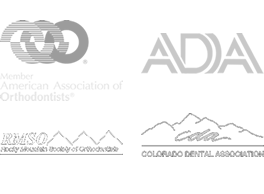TMJ disorder, which is named after the temporomandibular joint and commonly known as TMD, is a condition that affects your jaw. If you have been diagnosed with TMD, or if you have been having trouble related to your jaw and are wondering what the problem could be, you might want to learn a little more about this surprisingly common yet very uncomfortable disorder.
What is the temporomandibular joint?
It has a long funny name, but you know all about this joint even if you don’t realize it. Basically, it is the “hinge” that is found in front of both ears that connects your jaw to your skull. This is the joint that you depend on so that you can move your jaw up and down or so that you can move it side-to-side. It’s involved every time that you speak, eat, yawn or otherwise open and close your mouth.
Tell me more about TMD
TMD involves pain of varying degrees — some people find it to be merely uncomfortable, while others deal with severe pain related to this disorder — that affects your jaw. It can also make it difficult or impossible for you to open your mouth easily or fully for day-to-day things, such as talking or laughing.
Unfortunately, many doctors don’t really understand TMJ disorder. And since they’re not sure about the root causes of the condition, they also aren’t able to properly treat it. TMD can be temporary, or you could suffer with it for the rest of your life if left untreated. Both men and women experience TMJ disorder, although there are more reported cases from women. It can happen to people of all ages, but you are more likely to have TMD if you are between the ages of 20 and 40.
What causes TMJ disorder?
As mentioned above, many physicians are still confused about the various causes of TMJ. While most care providers understand that this ailment can result from major traumas like whiplash or a direct blow to the jaw, many don’t realize that you can also develop TMJ by grinding or clenching your teeth, repeatedly tightening your facial muscles due to stress, or even having missing teeth that lead to a bite imbalance and a host of other factors.
What are the symptoms of TMD?
If you have been having trouble with your jaw but aren’t sure if your TMJ is to blame, look for these symptoms:
- Pain in your jaw or elsewhere in your face and shoulders.
- Clicking or popping when you open or close your mouth; this could be painful, but many report that they do not feel any pain.
- Swelling on one or both sides of your face.
- Jaws that get “stuck,” making it difficult for you to open or close your mouth.
Breakthrough treatment for TMD
If you think you have TMJ disorder, it is a good idea to seek professional help for some relief. If you know that your condition is the result of a recent accident or injury, you should be fine visiting your regular health care provider. If, on the other hand, you have no idea why you are experiencing symptoms, you may want to visit a dental practitioner who specializes in a new cutting-edge treatment called TruDenta. This breakthrough, FDA approved therapy has been shown to be remarkably effective at correcting TMD.
Dr. Jared Ward at Fort Collins Headache Center is a specially trained TruDenta dentist who treats headaches, migraines and TMJ disorder. Using this remarkable diagnostic and treatment system, he can relieve symptoms that may have plagued you for years and which have not responded to any other form of treatment.
Book a consultation exam with Dr. Ward today to see if you are a candidate for this powerful new therapy. In just 20 minutes it will be clear whether TruDenta is the right course for you. If it is, a personalized treatment plan will be created to have you symptom free in just 12 or fewer weekly visits. Call Fort Collins Headache Center today at 970-672-8517 or use the contact form on this page. We look forward to hearing from you.

























